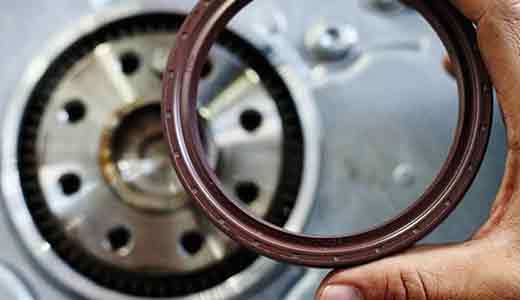Popular Information
Add: Yongkang st.renxian,xingtai city,hebei province china.054000
Tel:+86-319-7566977 7519805
Phone : +8613903298188
Fax:+86-319-7566976
E-mail :richard@bxseals.com
The Critical Role of Fluorocarbon Oil Seals in Enhancing Edible Oil Processing Equipment
Release Time:
Oct 10,2025
The Critical Role of Fluorocarbon Oil Seals in Enhancing Edible Oil Processing Equipment Table of Contents 1. Introduction to Edible Oil Processing Equipment 2. The Importance of Oil Seals in Processing Equipment 3. Understanding Fluorocarbon Oil Seals 4. Key Properties and Benefits of Fluorocarbon Oil Seals 5. Applications of Fluorocarbon Oil Seals in Edible Oil Processing
The Critical Role of Fluorocarbon Oil Seals in Enhancing Edible Oil Processing Equipment
Table of Contents
- 1. Introduction to Edible Oil Processing Equipment
- 2. The Importance of Oil Seals in Processing Equipment
- 3. Understanding Fluorocarbon Oil Seals
- 4. Key Properties and Benefits of Fluorocarbon Oil Seals
- 5. Applications of Fluorocarbon Oil Seals in Edible Oil Processing
- 6. Reduction in Maintenance and Downtime
- 7. Compliance with Health and Safety Regulations
- 8. Future Trends in Edible Oil Processing Equipment
- 9. Conclusion
- 10. Frequently Asked Questions
1. Introduction to Edible Oil Processing Equipment
In the modern food processing industry, the production of edible oils plays a fundamental role in meeting global nutritional needs. Edible oil processing equipment is designed for extracting, refining, and packaging oils from various sources, such as seeds and fruits. The efficiency and reliability of this equipment are critical for ensuring high-quality products. An often overlooked yet vital component within this machinery is the **fluorocarbon oil seal**. Understanding its role can significantly impact operational efficiency and product safety.
2. The Importance of Oil Seals in Processing Equipment
Oil seals serve as protective barriers that prevent the leakage of lubricants and other fluids within machinery. In edible oil processing, maintaining the integrity of these seals is crucial. The primary functions of oil seals include:
- **Leak Prevention**: Ensuring that oils and lubricants remain contained within the system.
- **Contaminant Exclusion**: Preventing dust, dirt, and other contaminants from entering critical machinery components.
- **Pressure Maintenance**: Helping to sustain the necessary pressure levels within the equipment for optimal performance.
The performance of edible oil processing equipment is directly linked to the reliability of its oil seals, making the choice of material essential.
3. Understanding Fluorocarbon Oil Seals
Fluorocarbon oil seals, also known as **FKM seals**, are manufactured from a synthetic rubber compound that provides exceptional resistance to heat, chemicals, and oils. These seals are particularly suited for high-performance applications due to their superior properties compared to traditional sealing materials.
**Key characteristics of fluorocarbon oil seals include:**
- **Temperature Resistance**: Capable of withstanding extreme temperatures, making them ideal for various processing conditions.
- **Chemical Stability**: Resistant to a wide range of chemicals, ensuring durability in diverse environments.
- **Low Friction**: Reducing wear and tear on equipment components, thereby extending their lifespan.
These attributes make fluorocarbon oil seals an excellent choice for edible oil processing equipment, where performance and reliability are paramount.
4. Key Properties and Benefits of Fluorocarbon Oil Seals
Fluorocarbon oil seals offer several advantages that make them indispensable in edible oil processing:
4.1 Enhanced Durability
Fluorocarbon seals exhibit superior durability compared to conventional rubber seals, allowing them to function effectively over extended periods.
4.2 Improved Performance
The low friction properties of fluorocarbon seals contribute to better efficiency in machinery, resulting in lower operational costs and higher productivity.
4.3 Increased Safety
In the food processing industry, safety is paramount. Fluorocarbon seals are resistant to various food-grade oils and do not degrade easily, ensuring that no harmful substances leach into the edible oil.
4.4 Lower Maintenance Costs
With their ability to withstand harsh conditions, fluorocarbon oil seals require less frequent replacements and maintenance, translating into significant cost savings for businesses.
5. Applications of Fluorocarbon Oil Seals in Edible Oil Processing
Fluorocarbon oil seals serve multiple applications within edible oil processing machinery. Some of the most common applications include:
5.1 Oil Extraction Machines
In oil extraction processes, fluorocarbon seals prevent leakage and contamination, ensuring that the extracted oil maintains its purity and quality.
5.2 Oil Refining Equipment
During the refining process, various chemicals and heat are involved. Fluorocarbon seals' chemical and temperature resistance makes them ideal for use in refining equipment.
5.3 Packaging Machinery
In packaging lines, the integrity of seals is crucial to prevent leaks and preserve product quality. Fluorocarbon seals are commonly used in bottling and sealing equipment.
6. Reduction in Maintenance and Downtime
Implementing fluorocarbon oil seals in edible oil processing equipment leads to a noticeable reduction in maintenance needs and machinery downtime. The resilience of these seals minimizes the frequency of replacements, enabling production lines to operate with greater efficiency. This is particularly beneficial for businesses aiming to enhance productivity while reducing labor costs associated with maintenance.
7. Compliance with Health and Safety Regulations
In the edible oil industry, compliance with health and safety regulations is non-negotiable. Fluorocarbon oil seals meet stringent food safety standards, ensuring that they do not compromise the quality or safety of the edible oil. The properties of fluorocarbon materials prevent chemical degradation, making them a reliable choice for food-grade applications.
8. Future Trends in Edible Oil Processing Equipment
As technology continues to evolve, so too does the edible oil processing industry. Future trends indicate a growing emphasis on sustainability and efficiency. Fluorocarbon oil seals will likely play a crucial role in this evolution by enabling high-performance machinery that minimizes environmental impact. Innovations in seal designs and materials promise to enhance their functionality further, paving the way for advancements in edible oil processing.
9. Conclusion
Fluorocarbon oil seals are essential components in edible oil processing equipment, contributing significantly to efficiency, safety, and cost-effectiveness. Their unique properties make them ideal for handling the challenges posed by modern processing demands. As the industry continues to innovate, the reliance on high-quality sealing solutions will grow, underscoring the importance of fluorocarbon oil seals in maintaining the integrity of edible oil products. By investing in these advanced seals, manufacturers can enhance their operations and ensure compliance with safety regulations, ultimately leading to better outcomes for their businesses.
10. Frequently Asked Questions
What are fluorocarbon oil seals?
Fluorocarbon oil seals are synthetic rubber seals designed to provide a reliable barrier against leaks and contamination in various applications, particularly in high-performance settings such as edible oil processing.
Why are fluorocarbon seals preferred in edible oil processing?
Fluorocarbon seals offer superior resistance to heat, chemicals, and wear, making them ideal for maintaining the integrity and quality of edible oils during processing.
How do fluorocarbon oil seals contribute to cost savings?
Their durability and low maintenance requirements reduce the need for frequent replacements, minimizing downtime and labor costs associated with maintenance.
Are fluorocarbon oil seals safe for food processing?
Yes, fluorocarbon oil seals are compliant with food safety regulations and do not degrade easily, ensuring that they do not introduce harmful substances into edible oils.
What future advancements can we expect in oil seal technology?
Future advancements may include improved materials and designs that further enhance the performance and sustainability of oil seals in the edible oil processing industry, contributing to more efficient production systems.
Key words:



